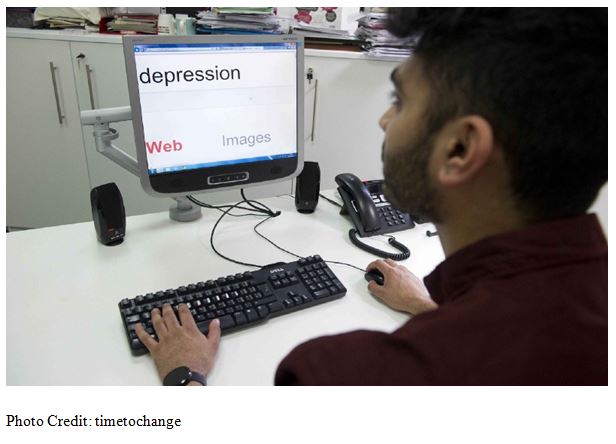“World Mental Health Day is observed on 10 October every year, with the overall objective of raising awareness of mental health issues and mobilizing efforts in support of better mental health. Mental health in the workplace is the theme of World Mental Health Day 2017.” – WHO
More than 300 million people suffer from depression which is also a leading cause of disability and a major contributor to diseases. Anxiety disorders such as panic disorder, post-traumatic stress disorder (PTSD) and social anxiety disorder affects the lives of more than 260 million people worldwide. Depression and anxiety are the most common mental disorders and are often diagnosed simultaneously contributing to an annual global cost of 2.5 trillion U.S. dollars and it is expected to rise to 6 trillion U.S. dollars by the end of 2030.
People with mental health disorders often experience fatigue, difficulty in concentration and experience problems in recalling a past event. Typically, one in five adults in the workplace is likely to suffer at least one mental health problem which can cause significant impairment in cognitive ability. A negative working environment often contributes to mental and physical problems, harmful use of alcohol and a poor family life. Employees who suffer from mental health issues are unable to focus at work and usually have low productivity.
Despite the public awareness of mental health, people with mental health issues have to face social stigma. Most people with mental health disorders in the workplace find it difficult to disclose their condition to colleagues and do not ask for help because of fear of judgment and losing friends. Unfortunately, people with mental health problems are often met with discrimination and confrontation which can prevent them accessing mental health care. Such poor attitudes and a lack of compassion often prove to be more damaging than the illness itself. Along with emotional support and understanding in the society, there is a strong need for developing technologies that will help people with mental problems regulate their emotions.
AffecTech, a project to that wants to build personal technologies for affective health disorders, invited scientists, health professionals and technologists at its launch event on 17th — 22nd September 2017 at Lancaster University, UK. The project aims to develop wearable technologies to help people with anxiety, depression and bipolar disorders. The event attracted industry and academia from diverse backgrounds to explore the possibilities of how technology can play a role in supporting mental health. Participants studied technology based reflection and meditation and how it can improve mental wellbeing. They also discussed emotion regulation strategies and challenges in regulating emotions. In a design workshop, participants analysed the thoughts that depressed people go through by looking at the drawings from a person diagnosed with depression and designed prototypes to help people cope with depression.
Affective health conditions are a growing public health concern and often require consultation of mental health professionals. AffecTech takes a different approach by bringing together biomedical engineers, designers and psychologists to explore lasting solutions to support people with mental health disorders. The project is committed to help people not only during a stressful situation in the workplace but in every emotional episode during their daily lives by developing low cost self-help technologies, and help them gain back control of their lives.
References:
· www.affectech.org
· www.mentalhealth.org.uk/
· www.mentalhealth.org.uk/
· www.who.int/mental_health/
· www.who.int/mental_health/in_
About AffecTech
AffecTech is established with support from the Marie Sklodowska-Curie Innovative Training Network funded by European Commission H2020. The project is committed to raising awareness about mental health issues, and in 2017 is supporting WHO’s World Mental Health Day.
For more details please visit: www.affectech.org
About the author
Muhammad Umair is an Early Stage Researcher at Lancaster University, one of 15 researchers embarking on a PhD fellowship as part of the AffecTech project. AffecTech researchers receive training to become agents of change, leaders and innovators who can drive social impact in affective health.




